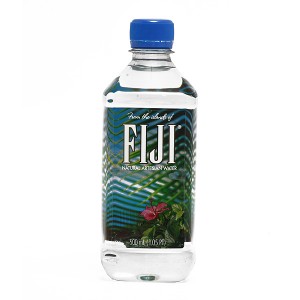Water is everywhere. It takes up about 70% of the Earths surface and makes up 60% of the mature human body. All organisms drink water daily in order to survive. Humans were blessed with the intellectual ability to filter water, have running water, and bottle water to drink wherever. Focusing specifically on the bottled water, one can go into a grocery store and see a multitude of brands of water. Many of them having different prices, and some claiming to be “better” than others. But isn’t H2O in one bottle the same as the H2O in the one next to it?
According to the Environmental Protection Agency (EPA), apparently not. I always thought that when the label on the water said, “purified” or “spring water” it was just for marketing purposes. It turns out its actually referring to the process the water went through before becoming bottled. The six types of water the EPA listed was distilled, spring water, purified, sterile, mineral, and drinking water.
Distilled Water- Water is boiled and the steam from this is condensed then bottled. All possible contaminants, microbes, and natural minerals are eradicated.
Spring Water- Water is collected as it streams up from an underground aquifer.
Purified Water- Water must meet the standards of the US Pharmacopeia to be considered purified. It must not contain more than 10 ppm of dissolved solids, can’t contain microbes, and any other contaminants must be absent.
Sterile Water- Water must also meet the standards of the U.S. Pharmacopeia to be considered sterile. It must be microbe free.
Mineral Water- Ground water that is unaffected by humans and naturally consists of at least 250 ppm of dissolved solids.
Drinking Water- Water that is safe for human consumption, and may or may not contain added disinfectants such as fluoride or chlorine
The next question that is now presented to a newly educated water bottle consumer is, “Which type of water is the best?”
As far as taste goes, water does in fact have different tastes depending on how its treated. The process of distilling water removes all foreign entities from the water, including natural minerals which gives water some taste. Therefore it tastes very flat and any of the natural minerals that can be nutritious are eliminated, although it will definitely be free of contaminants. Sterile water is in the same boat. Purified water is free of contaminants but also can lack some natural minerals. Spring water may or may not be purified so there has been instances in which spring water has had contaminants in it. The National Resources Defense Council conducted a study over four years and tested 1,000 bottles per brand. Approximately 22% of the brands tested for chemicals that were higher than state requirements in at least one of their respected samples. Drinking water may be the best bet as even though it can come from a tap, many times it has added disinfectants such as fluoride or chlorine. Fluoride especially is vital for dental health in children. Chlorine can give it an off-taste but if refrigerated over night that can be eliminated.
Last but not least, mineral water. I personally think its ridiculous to pay double the amount for a bottle of fancy water, but I am ignorant to any possible health benefits they have. A confounding variable in determining the healthiness of mineral water is the fact that it can vary in what/how many minerals it contains. Depending on where its from, it could contain good minerals like calcium, zinc, iron, magnesium, potassium, nitrate, sodium, sulphates, and bicarbonates. Although the exact amount of each one is unknown for each bottle. Another confounding variable is the amount of minerals the body actually absorbs. The amount of minerals is so non-substantial that the amount the body absorbs is almost undetectable depending on the person.
Personally, I’m sticking to the store brand purified water.



I agree with you that store-brand purified water sounds like the best option. I grew up drinking water from the tap because our area has naturally good drinking water. When I went to the French Alps last spring I drank from the tap there because the water came directly from the snow on the Alps. (That was probably the best water I’ve ever tasted). Anyway, after coming to college I have been trying to stay away from water in the water fountains (at least the old fountains in my dorm) because I don’t necessarily like the taste of it, and also because of new reports coming out on water in Centre County being filled with carcinogens. This article (http://triblive.com/state/pennsylvania/11234804-74/chromium-ppb-state) states this fact, although I am not sure how accurate this is, so this might just be me being paranoid.
Hey Casey!
As someone who enjoys drinking water more than any other beverage, I was immediately drawn into your post and enjoyed reading it! I never gave too much thought as to the processes behind different types of bottled or sourced water. The important thing to remember of course, regardless of your personal water source preferences, is that water is absolutely healthy and necessary not only for our own, but the lives of all kinds of organisms around the globe!
I fully recommend that yourself, along with others in the class, try to drink as much water as you can throughout the day, whether it be from a bottle, fountain, or even a garden hose if necessary! Drinking more water allows your body to remain hydrated, which allows you to have more energy throughout the day, along with a number of other benefits, which can be read at the CDC’s website (https://www.cdc.gov/healthywater/drinking/nutrition/).
Next time, maybe try to add in an additional image or two to really give it that blog feeling. Other than that, I found your post to be informative. Best of luck with the class!